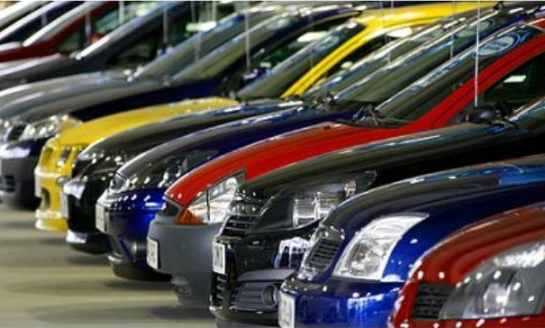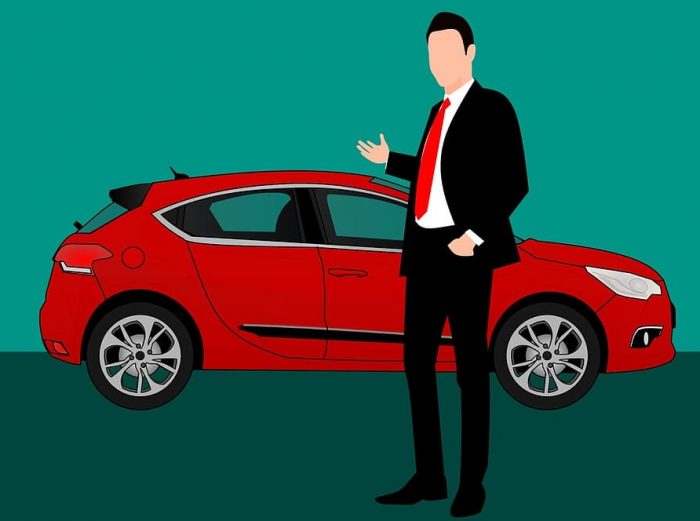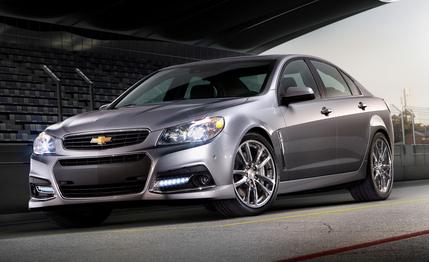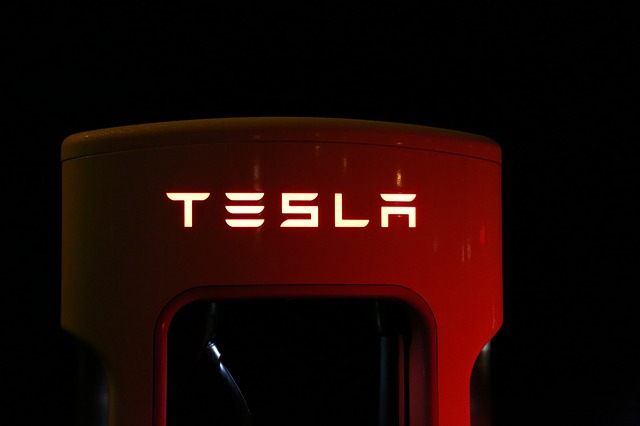Now Reading: Buying a Used Car: 7 Things to Think About
-
01
Buying a Used Car: 7 Things to Think About
Buying a Used Car: 7 Things to Think About

Buying a car can be a big investment, so you’ll want to ensure you get it right. Furthermore, the vehicle you choose will affect your quality of life, so finding the right car is essential. Whether you spend hours commuting every week, you rely on your car to get your kids to and from school, or you simply need a vehicle to get around at the weekends, it’s vital to find a car that suits your needs.
To make the process easier, take a look at these seven things to think about before buying a new car:
1. Make and Model
How you plan to use your vehicle will affect which makes and model are suitable, but there are plenty to choose from! There are more than 160 car manufacturers worldwide, and each produce numerous models. For car buyers, this means there’s an extensive choice, regardless of whether you’re looking for a sedan, minivan or SUV.
Personal preference really comes into play when you’re deciding which make and model to buy, so choose a car you love the look of. However, think about how you’re going to use your car on a day-to-day basis. You might like the style of a 2-seater convertible, for example, but it’s not going to be the ideal choice for taking more than one child to school every day!
2. Budget and Costs
Your budget will, of course, have an impact on the car you end up buying. Fortunately, purchasing a used car gives you the opportunity to get the most for your money. Vehicles can depreciate very quickly, which is why buying a brand-new car from a dealership is rarely cost-effective. When you purchase a car that’s just two or three years old, however, you get the benefit of having a ‘new’ car but can knock thousands of dollars off the purchase price.
When you’re deciding how much to spend on a vehicle, think about the various funding options. If you don’t want to buy a car outright, you might want to apply for car finance, lease a vehicle or take out a commercial loan.
With car finance, for example, you can spread the cost of your vehicle over an extended period of time and pay a relatively low amount of interest. Furthermore, used car companies like Clutch make it easy to get pre-approval, so you can browse for vehicles safe in the knowledge that you can arrange financing when you find a car you love. To learn more, take a look at this lease vs finance blog to find out how you can fund your next car.
3. Insurance Options
It’s compulsory for drivers to have car insurance in Canada, so don’t overlook this important element of purchasing a car. As some provinces have different requirements regarding the mandatory level of cover, you’ll want to double-check exactly what type of insurance you need.
However, the particular vehicle you buy will have an effect on how much your insurance premiums are. A relatively new luxury sports car that’s worth $100,000 is going to cost more to insure than a family SUV worth $30,000, for example.
The cost insurance depends on numerous factors, but your age, driving history and location are usually taken into account. Before you decide which car to buy, be sure to get a few insurance quotes first. This will confirm that your preferred make and model won’t take you over your budget or end up costing more than you thought it would.
4. In-Car Technology
Technology is at the heart of the automotive industry, which means that new cars are fitted with a wide array of in-car tech. From safety features, like automated braking and adaptive cruise control, to optional extras, such as wireless charging and Bluetooth connectivity, there are lots of ways that technology can enhance your experience as a driver or a passenger.
All modern vehicles feature some level of technology, but some models have more in-car tech than others. If you want your vehicle to have all the latest mod cons, be sure to take a look at the latest automotive innovations and choose a model that’s packed full of the newest features.
5. Gas, Diesel or Electric?
What your vehicle runs on should also be a major consideration when you’re deciding what car to buy. Although some car manufacturers do offer models that run on diesel, these vehicles are rarer in Canada. For most drivers, therefore, it’s a choice between a gas or electric vehicle.
While car enthusiasts often enjoy the sound or feel of a petrol engine, electric vehicles can be cheaper to run and are obviously better for the environment. If you want to make the sustainable choice, a ‘green’ electric car might be your preferred choice. However, if you’re struggling to make the switch, why not opt for a hybrid vehicle? With both gas and electric power, you can drive a cleaner and more sustainable vehicle, while still retaining the flexibility and convenience that a traditional engine offers.
6. Private Seller or Dealer?
If you’re buying a used car, you can purchase a vehicle from either a private seller or a dealer. People sometimes assume that it’s cheaper to buy from a private seller, but this isn’t always the case. Furthermore, there can be some disadvantages to buying a used car from a private seller. You’ll need to check the vehicle yourself if you purchase from a private seller, for example, and you may miss potential faults with the car. In addition to this, you won’t have a warranty or consumer rights if you buy a used car directly from a private seller.
In contrast, purchasing a car from a used car company gives you extra peace of mind. When you buy a car from Clutch, for example, you’ll know that the vehicle has been thoroughly assessed with a 210-point check and you’ll also have the benefit of a 90-day or 6,000km warranty.
7. Reviews and Ratings
All vehicle manufacturers are required to adhere to strict safety standards, but some producers might be more likely to issue product recalls than others. Similarly, some cars receive higher ratings from consumers, which can give you insight into whether they really live up to the hype.
If you can’t decide which model is right for you, it’s well worth looking at reviews and ratings from other owners and car experts. With a little research, you can find independent reviews of every model out there, so it’s easy to get the lowdown on how well a particular model runs, how comfortable its seats are and whether it’s as economical as the manufacturers claim.
Find Your Next Car Now
Ideally, you won’t want to rush the process of finding a new car, so don’t wait until your current vehicle is off the road to start your search. The more time you can spend conducting researching and browsing different options, the more likely you are to find a car you’re happy with. Whether you’re in the market for a family-friendly vehicle, a luxury sports car, spacious SUV or a sustainable electric motor, the sooner you start looking for your dream car, the sooner you’ll find it!
Stay Informed With the Latest & Most Important News
Previous Post
Next Post
-
 01Polestar Boss Says It’s Time To Outrun BMW M And Mercedes-AMG
01Polestar Boss Says It’s Time To Outrun BMW M And Mercedes-AMG -
 02Spy Shots: 2027 Mitsubishi Pajero Spotted in Testing Ahead of Possible U.S. Return
02Spy Shots: 2027 Mitsubishi Pajero Spotted in Testing Ahead of Possible U.S. Return -
 03Spy Photos: VW ID. Polo GTI Goes Electric with 223 HP and 280 Miles of Range
03Spy Photos: VW ID. Polo GTI Goes Electric with 223 HP and 280 Miles of Range -
 04The Controversial Ford Voodoo V8 That Was Killed Off Too Early
04The Controversial Ford Voodoo V8 That Was Killed Off Too Early -
 052026 Toyota Hilux EV: A Powerful Truck with Silent Torque
052026 Toyota Hilux EV: A Powerful Truck with Silent Torque -
![2027 Mercedes-Benz S-Class Debuts with V8 Engine [Photo Gallery]](https://speedlux.com/wp-content/uploads/2026/01/2027-Mercedes-Benz-S-Class-33-155x125.jpg) 062027 Mercedes-Benz S-Class Debuts with V8 Engine [Photo Gallery]
062027 Mercedes-Benz S-Class Debuts with V8 Engine [Photo Gallery] -
 07Hyundai Palisade’s Breakout Year Shows How Quickly the Market Can Turn
07Hyundai Palisade’s Breakout Year Shows How Quickly the Market Can Turn


![2027 Mercedes-Benz S-Class Debuts with V8 Engine [Photo Gallery]](https://speedlux.com/wp-content/uploads/2026/01/2027-Mercedes-Benz-S-Class-33-700x394.jpg)










































